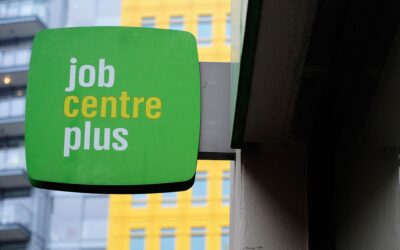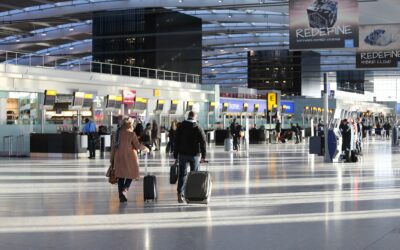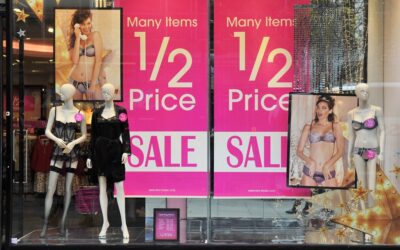Young people are more than twice as likely to have lost their jobs and and just under six in 10 have seen their earnings fall since the coronavirus pandemic began, research has found.
Employment and earnings losses are also more pronounced for women, the self-employed and those who grew up in a poor family, according to researchers at the London School of Economics.Among people aged 16 to 25, some 11.1 per cent reported losing their job in the past two months, compared to 4.6 per cent for those aged 26 or over.
Overall, 5.4 per cent of people who took part in the research said they had lost their job. A further 7.3 per cent reported that they were still in work, but working zero hours meaning 12.7 per cent were workless. Among the younger age group, 18.3 per cent were workless compared to 11.9 per cent in those aged 26 to 65.Professor Stephen Machin, director of the LSE’s Centre for Economic Performance and report co-author, said: “These are very significant hits to the labour market for young adults in particular. There is a real concern that people who have lost their jobs are moving onto trajectories heading to long-term unemployment, the costs of which are substantial.” The study highlights “substantial and sustained losses” not only to young people’s employment but also their education with private school pupils less severely impacted than state school pupils.During April, nearly three-quarters (74 per cent) of private school pupils were benefiting from full school days – nearly twice the proportion of state school pupils (38 per cent).A total of 9 per cent of parents reported paying for private tutoring during lockdown. Parents in the highest quartile of incomes were over four times as likely to pay for private tutoring during lockdown than those in the lowest quartile of incomes – 15.7 per cent compared with 3.8 per cent. Andrew Eyles, research economist at the CEP, said: “Our research findings of substantial and continuing education loss add to growing evidence that disadvantaged students have fallen behind their more privileged peers due to differences in school provision, and the stark home learning divide in study space, computers and internet connectivity and access to paid tutoring.”
The Independent Articles
The Hut Group sales jump 39% as shoppers increase online spending during pandemic
Online beauty retailer The Hut Group saw sales rise 39 per cent in its latest quarter as the pandemic helped to boost internet shopping.
The group, which owns a collection of beauty brands and licences its technology platform to other companies, reported sales of £378.1m for the quarter to 30 September. Direct-to-consumer sales jumped by 51.3 per cent.Revenues were already rising rapidly before the pandemic began and THG has since seen strong demand for hand sanitiser, vitamin C and hair dye.In its first update since floating on the London Stock Exchange last month, THG raised its annual revenue target to between £1.48bn and £1.52bn. Last month, it told investors it expected to post revenues of £1.43bn for the year.THG was valued at £5.4bn when it floated in London’s biggest initial public offering since Royal Mail in 2013. Shares in the company rose 5 per cent on Monday to 708p.Matthew Moulding, group chief executive and executive chairman, said: “I am pleased to report a strong period of trading in our first quarterly update as a public company, including an upgrade to revenue growth guidance for 2020.
“I would like to thank all our colleagues for their huge contribution to date.”
AJ Bell investment director Russ Mould said: “E-commerce firm The Hut Group begins life as a public company very much on the front foot as it upgrades revenue guidance in its maiden trading update.
“Whether this is thanks to an unexpected trading boost or just canny management of investors’ expectations, it should help keep sentiment towards the company in a positive place after a strong start in share price terms to life as a listed entity.
“In order to maintain this momentum, the firm will rely on strong demand across its health supplement and beauty product sites through the Christmas trading period and upcoming Black Friday sales event.”
British Airways splits with M&S on inflight food
British Airways has confirmed that it is ending its contract with Marks & Spencer to provide inflight food on short-haul flights in economy class.A spokesperson for BA said: “We proudly launched our buy-on-board catering in 2017 with high street favourite, M&S.“After a successful journey, we are headed off on a new flight path. We look forward to announcing our exciting new buy-on-board proposition with a great British brand that customers have told us they love.”An M&S spokesperson said,: “We are proud to have been a supplier to BA’s short-haul food service since 2017. “Our partnership was always due to end this year and we have agreed not to renew. M&S Food continues to focus on developing its wider franchise partnerships.”According to The Sun, the two main contenders for the new contract are Waitrose and Greggs. The Independent has asked both companies to comment.Until then, BA had always insisted that free inflight catering is an essential part of its product, promising customers: “Whenever and wherever you are travelling, we offer a complimentary snack or meal and bar service.”Some passengers complained that the airline was turning into easyJet, which has charged for meals and drinks since its inception in 1995. But Mr Cruz said: “I firmly believe what we are delivering breaks the mould and sets a new standard in short-haul catering.” Passengers were invited to taste “favourites from the M&S Foodhall,” such as a £1 packet of crisps and a £4.95 “buffalo mozzarella and tomato focaccia”.Newly discovered 500m tall reef in Great Barrier ReefSince the coronavirus pandemic began, the “buy on board” option has been withdrawn by British Airways to minimise contact with crew.Instead, all economy passengers are handed a plastic bag containing a 25ml bottle of water, a biscuit and a packet of crisps.One unimpressed passenger told The Independent: “It’s completely bonkers. They’re handing out bottles of water and packets of crisps, so every passenger promptly removes their face covering mid-flight to drink the water and eat the crisps.“Touching the face mask is supposed to reduce its effectiveness, unless its anti-bacterial properties are magically restored by the pungent aftermath of consuming a bag of salt and vinegar crisps.”British Airways continues to provide complimentary food and drink in long-haul economy and all premium classes.
Viagogo may be forced to sell StubHub to stop fans being hit with higher ticket prices
Viagogo will have to sell part or all of StubHub after a watchdog found that a deal between the two ticket-selling firms could lead to higher prices and worse service for fans. The Competition and Markets Authority (CMA) provisionally ruled that Viagogo’s takeover of its only major rival could cause a “substantial lessening of competition” in the sector.Between them, the two companies have a 90 per cent share of the much-criticised ticket reselling market.Viagogo completed its takeover of StubHub in February this year, with the CMA launching its so-called phase-two inquiry in June after concerns were raised.Some music and sports fans feel that the two companies unduly inflate prices for tickets and charge excessive fees. The CMA laid out a range of options for the companies. A full sale of StubHub would address all of the regulator’s concerns, while a partial sale would have to involve “at least the assets and operations of either StubHub or Viagogo that cover the relevant market – the supply of uncapped secondary ticketing platform services for the resale of tickets to UK events”.The watchdog has set a deadline of 5 November for views on the possible remedies, and 12 November for the wider provisional findings.Stuart McIntosh, chairman of the CMA inquiry group, said: “The evidence we’ve seen so far consistently points in the same direction – that Viagogo and StubHub have a market share of more than 90 per cent combined and compete closely with each other.“We are therefore concerned that their merger could lead to secondary ticketing customers facing higher fees and lower quality services.“We’re now inviting comments on our provisional findings and possible remedies.”Viagogo made “substantial” changes to its business model after the CMA took it, StubHub and two other ticket resellers to court for breaking consumer protection law.Fans had been turned away from events after having bought tickets on the four companies’ platforms.Andrea Coscelli, chief executive of the CMA, said at the time that customers who look for tickets on resellers must be told what seat they will get and whether they risk being denied entry to a venue.
Businesses hail Rishi Sunak’s ‘hugely generous’ job support package
Pubs, bars and restaurants have hailed a “hugely generous” £13bn package of support unveiled by Rishi Sunak, including changes to the furlough replacement scheme, help for the self-employed and grants for businesses affected by local lockdowns.But opponents and experts asked why more was not done sooner to prevent thousands of people losing their jobs.And Andy Burnham, mayor of Greater Manchester, said he was left “open-mouthed” in astonishment as the chancellor turned on the spending taps for tier 2 areas like London just days after his city was refused an additional £5m to help its businesses weather the strictest tier 3 restrictions.Mr Sunak told the House of Commons he was acting in response to the “profound economic uncertainty” experienced by businesses which are allowed to remain open but have found the impact of health restrictions “worse than they hoped”.He acknowledged the strain the second wave of the virus was placing on communities living under coronavirus curbs and warned of “difficult days and weeks ahead”.“I understand your frustration, people need to know this is not forever,” said the chancellor. “These are temporary restrictions to help control the spread of the virus.”After weeks of sustained pressure, and with just days to go before his furlough scheme ends, Mr Sunak bowed to calls for bigger government contributions to wages. Westminster will now pick up about 60 per cent of workers’ wages for hours not worked, up from 33 per cent under previous plans.Employers’ minimum contributions will be cut from 33 per cent to 5 per cent, making it much easier for struggling businesses to retain staff.That pleased no one more than the country’s hospitality businesses, which are being hit hard by renewed fears about rising case numbers – and an enforced 10pm closing time.Pubs in areas under tier 2 restrictions had “felt like they had the worst of all worlds”, with additional rules reducing trade further but without receiving additional support, said Tom Stainer, chief executive of the Campaign for Real Ale. “So these new financial support packages will be warmly welcomed by the beer and pubs sector.”Pubs and brewers will now have a much better chance of surviving, he said.The chancellor also outlined grants of up to £2,100 per month for businesses under tier 2 restrictions in England that can remain open but are seeing a significant drop-off in trade. Grants will be backdated to August for areas such as Greater Manchester that have already been under restrictions for some time, heading off Labour criticism that the government has neglected the needs of much of the country with its support measures.Anneliese Dodds, the shadow chancellor, branded Mr Sunak’s announcements as “a patchwork of poor ideas rushed out at the last minute” and questioned why “this is the right thing to do now, but wasn’t when parts of the north and midlands” were put under restrictions months ago.Kate Nicholls, chief executive of UKHospitality, which represents pubs, bars, hotels and restaurants across the country, said it was a “hugely generous package of support”.“The changes to the job support scheme [JSS] will help to safeguard hundreds of thousands of jobs and the grant support will provide a crucial lifeline for businesses struggling with low footfall and ongoing costs. “It is excellent that the grant has been backdated to when the restrictions began to bite.”The new measures will protect 2 million more people from redundancy than the previously announced job support scheme, according to calculations by the New Economics Foundation.The JSS had been widely criticised for making it cheaper to sack staff than to keep them on at reduced hours. Yet, while the new measures are significantly more generous, they leave about 450,000 jobs unprotected and do nothing to help those already out of work due to the delay in fixing flaws in the scheme, the NEF said.NEF chief executive Miatta Fahnbulleh welcomed the announcement but said further improvements were needed.“Now the chancellor needs to address the other gaps in his plan. Full furlough for businesses that are being asked to shut down for months on end,” Ms Fahnbulleh said. “Support for millions of excluded. And a minimum income guarantee to bolster support for many that have and will lose their jobs this winter.”As currently designed, the scheme may advantage older workers at the expense of their younger colleagues, said Andrew Sanford, a partner at accountants Blick Rothenberg.He pointed out that, while employers’ contributions have decreased, they must still pay national insurance and pensions. “For businesses with no funds, redundancy and liquidation maybe the only option available,” he said. “Older workers may have more years of service and so redundancy costs may mean they are retained compared to a new joiner. “Some additional funding for the under-25s in covering their employer’s national insurance would have been welcomed.”Mr Sunak also doubled the value of upcoming grants for the self-employed from 20 per cent to 40 per cent of average profits, increasing their maximum value from £1,875 to £3,750.The Treasury declined to put a precise figure on the total cost of the support, which will depend on how long restrictions last and the level of take-up.IPSE, the representative body for self-employed workers, said there remain “deep structural problems” with the system.
Consumer confidence falls as millions are placed under new lockdown restrictions
Consumer confidence fell over the past month as coronavirus case numbers rose and the government introduced new lockdown restrictions across much of the country.According to GfK’s monthly index, the number of people who said their finances deteriorated in the past year is on the rise. Looking forward, respondents were also more pessimistic about their personal financial situation and the wider economy.The overall index fell six points from minus 26 to minus 31. Anything below zero indicates that more people have a negative outlook than a positive one.
A fall in confidence could damage the UK’s already struggling businesses which face additional restrictions after the new three-tier lockdown approach was unveiled last week.Millions of households are now under stricter rules that mean they cannot mix with others.GfK’s survey, which has been published regularly since 1974, indicates that people continue to be significantly more confident about their own finances than the economic health of the country.
The measure for the general economic situation during the last 12 months has decreased by six points in October to minus 67, some 34 points lower than a year ago. By contrast, the personal finance measure came in at zero.
Joe Staton, client strategy director at GfK, said: “There’s a worrying threat of a double dip in consumer confidence as concerns for our personal financial situation and even deeper fears over the state of the UK economy drag the index down six points this month.
“Despite low inflation and rock-bottom interest rates, a buoyant housing market and a raft of government financial stimulus measures, the prospect of rising unemployment is severely depressing our outlook.”He said the findings were collected before the latest round of Covid-19 restrictions came into force, adding: “Expect the autumn chill to give way to much stormier conditions.
Ice cream sales take a hit as tourists stay home but bleach remains popular, says Unilever
High demand for cleaning products and comfort food helped consumer goods giant Unilever bounce back from lockdown with higher-than-expected sales, it has announced.The maker of Dove, Ben & Jerry’s, Wall’s and Pot Noodle said ice cream sales had taken a hit as tourists stayed home but sales of soap and hand sanitisers remained strong during the pandemic.Unilever’s underlying revenues rose 4.4 per cent in the third quarter – more than double what analysts had forecast.The Anglo-Dutch firm has also benefited from government orders to stay at home during lockdowns around the world, which have boosted supermarket sales as shoppers stocked up their cupboards with Unilever’s well-known brands such as Hellman’s mayonnaise.Home care sales, including Comfort fabric softener and Domestos bleach, jumped up 6.7 per cent to €2.6bn (£2.4bn). Unilever recently launched Domestos in China. The beauty and personal care division grew 3.8 per cent, benefitting from strong sales of soap and sanitiser via its Dove products.
While people may be washing more frequently, sales of skin care products and deodorants both dropped as many people worked from home and socialised less.Social distancing and the partial shutdown of hospitality businesses also caused a 20 per cent drop in sales for Unilever’s food services arm.“We’re investing heavily in marketing our brands and [getting] behind innovation tailored to the changing environment as consumers learn to live with Covid,” said chief executive Alan Jope in a call following the announcement.The company also warned that its plans to unify its Dutch and English halves under one UK entity remains under threat due to a tax penalty that could be imposed in the Netherlands.
Shareholders backed Unilever’s unification earlier this month but the Dutch parliament is looking at a bill that would order a tax payment to be made before the move could go ahead.
‘It’s caused chaos’: Liverpool’s gyms re-open but frustration lingers at government’s erratic approach to lockdown
Gyms in the Liverpool City Region are to re-open after the government bowed to pressure, but another government U-turn has done little to secure the confidence of an industry that sees itself as vital for keeping the country healthy through lockdown.Gyms in Merseyside were ordered to close last week when the region became the first to be put under tier 3 lockdown restrictions. But days later, when it was announced Lancashire was to go into tier 3, gyms there were allowed to remain open.To gym owners and fitness instructors, news that the decision has been reversed has been welcomed but the inconsistency hardly projected an image of a government in control of a crisis.”It’s caused chaos. It was like a car crash in slow motion,” said Dr Colin Robertson, co-founder and director of UTS Gym in the Wirral.As soon as tier 3 was announced, local gyms came together and discussed a strategy. All were determined to resist the order to close as best they could. Some lobbied the government through a trade body UK Active, presenting data to ministers showing that a tiny percentage of transmissions were thought to happen in gyms and fitness centres.Others, like Body Tech Fitness took a more direct approach, opening despite being ordered to close. Nick Whitcombe, the gym’s owner, took a defiant stand on social media, generating huge support and helping to add more names to a petition in support of keeping gyms open that gathered hundreds of thousands of signatures.“There was such little response from government, we could see where it was going,” says Robertson, who has a PhD in physiology and has conducted research in clinical and public health.There is an understandable feeling in the fitness industry that the government’s approach of leaving restaurants and many pubs open while shutting down gyms made little sense; another example of not “following the science” and, perhaps more importantly, failing to present the reasoning for decisions made behind closed doors in Westminster.“It was almost there was a political assumption that Lancashire would run their gyms better than we would on Merseyside,” said Robertson,“We are a vital service, we work in health. We are the only preventative measure, against Covid.“At this time more than ever, our members more than ever need a gym for that bit of mental space. “The world at the minute couldn’t be any more of a stressful place. Our members come to the gym and they let it all out of the system and know that there are multiple positive health outcomes.”Safety is paramount at UTS and other centres in the area, he said. That’s especially the case because he also runs the UTS Foundation, a charity that offers free training and nutrition advice for people who have, or have had, cancer.“They’re at higher risk because of the co-morbidity. We’ve trained our trainers in how to work with people who’ve had Covid to prepare our workforce to be able to get better. Then you get told to shut down.”There’s a sense that by ordering them to close, even if only for a short time, the government has tarnished gyms’ reputation as a safe place to go, among a population that’s already fearful.“People were rightly cautious in the wake of the national lockdown,” said Robertson.“It’s going to be like that again now. It’s so hard to get a consistent message from the government and then out through the media.”For Jonathan Priest, a personal trainer and director of Fitness Wirral, the pandemic has presented an opportunity to expand his fitness business but erratic government messages are putting that at risk.Some 1,700 customers have signed up for his outdoor fitness classes since the first lockdown began, a success he and his partner aim to channel into starting their own gym.
UK government borrowing hits £36bn in September
Government borrowing rose to £36.1bn in September as the country spent heavily to support jobs and the economy through the coronavirus pandemic.
The figure was £28.4bn more than in the same month last year, and the third-highest borrowing in any month since records began in 1993.
Central government spent £77.8bn on day-to-day activities, £18.1bn more than in September 2019. This includes £4.9bn on the furlough scheme and £1.0bn in payments to support self-employed workers, the Office for National Statistics said.Borrowing in the first six months of this financial year (April to September 2020) was £208.5bn, £174.5bn more than in the same period last year and the highest borrowing in any April to September period since records began. Each of the six months from April to September 2020 were also records.However, borrowing was 20 per cent lower than the Office for Budget responsibility forecast in July.While the cost of supporting the economy is mounting, experts have warned that the cost of withdrawing support could be substantially higher as people are pushed out of work and onto benefits, sucking demand out of the economy, heaping further pain on already struggling businesses.Read moreMuch of the increased borrowing was due to lower tax receipts, partly because of tax cuts brought in to help businesses, and partly due to lower spending as the virus caused people to cut back on spending.VAT receipts dropped 30 per cent while corporation tax receipts were down 13 per cent. By international standards, the UK government’s stimulus measures have been relatively modest at around half of the level deployed in the US or Japan and two-thirds that of Germany, when compared to the size of each nation’s respective economy.The interest rate on government borrowing remains at historic lows. Over 25 years, Rishi Sunak can borrow at 1.5 per cent meaning that if the economy returns to pre-pandemic levels of growth the interest on the debt could be paid without increasing taxes. Over 10 years, the rate on government gilts is just 0.19 per cent.“Overall, low inflation and low gilt yields give the Bank of England and the Chancellor the green light to do more to support the economy,” said Paul Dales, chief UK economist at Capital Economics.The Treasury announced on Wednesday it had scrapped a planned multi-year spending review due later this year and replaced it with a one-year review to focus on the impact on the public accounts from the coronavirus crisis.The review will take place by the end of November and focus on supporting jobs, setting department resources and capital budgets and block grants for devolved administrations. Mr Sunak said: “In the current environment it’s essential that we provide certainty. So we’ll be doing that for departments and all of the nations of the United Kingdom by setting budgets for next year, with a total focus on tackling Covid and delivering our Plan for Jobs.”A crucial deadline is looming next week as the furlough scheme comes to an end while much of the country remains under stricter lockdown measures, giving some businesses whose revenues have dried up little choice but to cut jobs.Read moreSeparate figures released on Wednesday showed that inflation was 0.5 per cent in September, well below the Bank of England’s 2 per cent target.Including housing, consumer price inflation came in at 0.7 per cent. The figures will put further pressure on the Bank to provide more stimulus to the economy, either by creating new money or cutting interest rates below zero for the first time. Gertjan Vlieghe, one of nine members of the bank’s monetary policy committee, signalled in a speech on Tuesday that more intervention is likely to be needed.
He warned: “Given that virus prevalence has been increasing again recently, it is likely to weigh more heavily on economic activity.
“Indeed, it appears that the downside risks to the economic outlook are starting to materialise.”
The UK faces a “tremendous challenge ahead” with joblessness now forecast to be far higher than previously expected, Mr Vlieghe said.
“In my view, the outlook for monetary policy is skewed towards adding further stimulus.”
Next accused of destroying documents in equal pay claim by shop-floor staff
Next has been accused of destroying vital documents needed by shop-floor workers to prove their equal pay claim. Hundreds of store staff, mostly women, have brought a claim against the retailer, arguing that their work is of equal value to that that carried out by colleagues in warehouses, who are mostly men.Next pays warehouse workers between £2 and £6 an hour more than shop floor workers. Law firm Leigh Day, which is bringing the case, alleges that timesheets showing what hours staff worked have been destroyed, a claim which Next strongly denies.
Watch moreAn Employment Tribunal hearing is scheduled for 12 January to establish what happened to the documents and what, if any, penalty Next should face.
The tribunal could choose to issue a strike-out order, meaning the retailer would lose the right to continue to defend the equal pay claims lodged before the hearing, Leigh Day said.More than 330 of Next’s 25,000 staff have lodged claims so far. The law firm estimates that if all eligible employees joined and the legal actio was successful, the retailer could have to pay out as much as £200m.
A spokesperson for Next said: “Next has not destroyed documents in breach of a Tribunal Order and it believes that any assertion that it has, is based upon inaccurate information. Next is therefore confident that any application for a ‘Strike-Out-Order’ will not succeed, as it is meeting all of its obligations under the Tribunal process.”
The company will continue to defend itself vigorously in the claim, the spokesperson said.
Read moreElizabeth George, a barrister in the employment team at Leigh Day, said: “It appears that essential documents to our case have been destroyed. Next will have a full opportunity to explain how and why that was allowed to happen at the hearing in January and it would be wrong to pre-empt the Tribunal’s ruling on that.
“I can say that it is fundamental to a fair hearing of this case that neither side destroy documents that they know, or should know, are highly relevant to the other’s case.”Pauline Costello, whose name has been changed to protect her identity, has worked at a Next for more than 10 years. She said she felt shocked and undervalued when she found out how much higher warehouse pay was. “I’m hopeful for a positive outcome at the hearing,” Ms Costello said. “It will help to restore my confidence and self-respect because finally the company I have worked hard for will now recognise that my role as a sales consultant is as valuable as a warehouse operative.”The claim is one of a series brought against large UK retailers for billions of pounds over years of pay discrepancies between jobs filled mostly by men and those filled mostly by women.Claimants must prove that their work is of equal value and that the difference in pay cannot be justified. This can be complex for the tribunal to assess, with experts brought in to review what different workers do and give their role a “job score”.If successful, claimants may be able to claim up to six years of back pay to compensate them for the shortfall.










